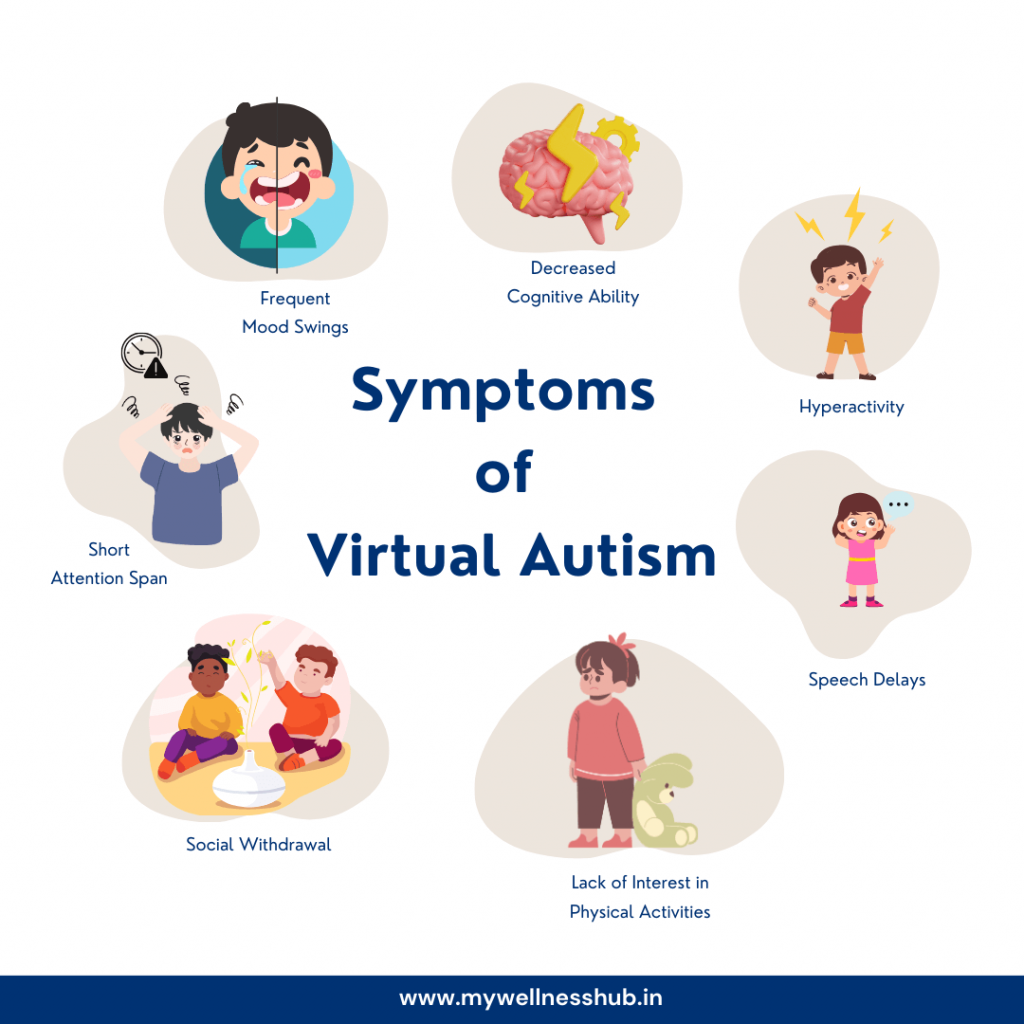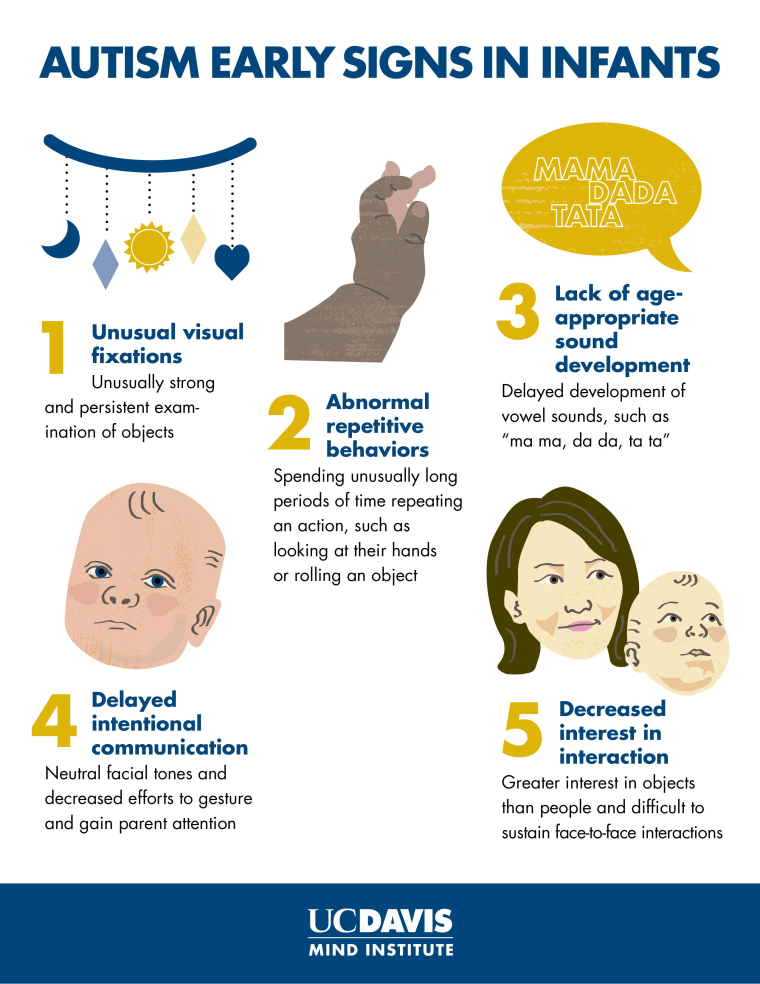Signs it’s time your family needs Autism Behavioral Therapy
Signs it’s time your family needs Autism Behavioral Therapy
Blog Article
Understanding the Effect of Behavioral Autism on Every Day Life and Social Communications
You may not recognize exactly how deeply behavioral autism affects everyday life and social interactions. People on the range frequently navigate a world loaded with communication obstacles and sensory overload. These difficulties can lead to irritation and isolation, affecting their connections and overall wellness. Recognizing these subtleties is vital for fostering supportive settings. What techniques can we execute to create more significant connections and comprehensive areas? The responses could shock you.
Defining Behavioral Autism and Its Features
Behavioral autism, often described as autism range disorder (ASD), includes a variety of conditions identified by challenges in social communication, communication, and repeated actions. You may notice that individuals with ASD typically battle to translate social signs, which can bring about misconceptions in discussions. They might find it difficult to develop eye contact or take part in small talk, making social circumstances really feel overwhelming.
Interaction difficulties can show up in various ways, from postponed speech growth to a choice for using less words. Recurring behaviors, such as hand-flapping or shaking, can act as coping systems to manage anxiety or sensory overload. These features can profoundly affect everyday life, making it crucial for you to recognize and support those with ASD. By acknowledging these characteristics, you can promote a setting that advertises approval and urges effective communication, assisting people with autism thrive in their daily interactions.
The Range of Autism: Understanding Irregularity in Actions
Autism spectrum condition (ASD) isn't a one-size-fits-all diagnosis; it varies commonly among people. You might encounter individuals that are very verbal and involve quickly in discussions, while others may favor singular tasks or interact non-verbally.
Furthermore, the means individuals with ASD respond to sensory input can differ considerably; some may be bewildered by loud sounds or bright lights, whereas others thrive in stimulating environments. The range additionally includes distinctions in social interactions; some individuals may have a hard time to translate social cues, while others browse social settings with family member ease. Understanding this irregularity is vital, as it helps you appreciate everyone's one-of-a-kind experience and tailor assistance to their specific requirements, cultivating an extra inclusive setting for every person.
Communication Difficulties Faced by Individuals With Autism
When you connect with individuals on the autism spectrum, you might notice their one-of-a-kind interaction challenges. They frequently deal with difficulties with both nonverbal and spoken signs, which can impact their social interactions. Understanding these barriers is necessary for fostering far better connections and assistance.

Verbal Interaction Problems
Many individuals on the autism range experience verbal interaction problems that can significantly affect their day-to-day interactions. You might locate it challenging to reveal your ideas, sensations, or requires plainly. This can lead to irritation for both you and those around you, as misconceptions take place. You may deal with launching discussions, keeping a subject, or understanding subtleties in speech. Often, you could favor using simple language or repeated phrases, which can limit your ability to take part in much deeper conversations. Your quantity, tone, or pace may not line up with social expectations, creating others to misinterpret your intents. Identifying these difficulties can help you and your support network establish methods to enhance communication and promote much better connections with others in your life.
Nonverbal Communication Barriers
Spoken interaction isn't the only obstacle individuals on the autism spectrum face; nonverbal interaction barriers can be just as substantial. You might find it tough to analyze body movement, faces, and eye call, which are necessary for reliable interaction. These obstacles can lead to misunderstandings or false impressions of social hints, making interactions really feel complex or frustrating. You might battle to share your own emotions with nonverbal means, leaving others not sure of your intents or sensations. This disconnect can produce sensations of seclusion and irritation. Identifying these barriers is crucial for cultivating understanding and compassion in your interactions. By resolving nonverbal communication, you can find strategies to enhance your social experiences and improve your general lifestyle.
Social Communication Influences
Social interactions can commonly feel overwhelming due to the special communication difficulties encountered by people with autism. You may deal with interpreting social hints, making it difficult to comprehend sarcasm or body movement. This can cause misconceptions or uncomfortable minutes in conversations. In addition, launching and preserving conversations may feel challenging, creating stress and anxiety in Autism Behavioral Therapy social scenarios. You might like organized atmospheres, making spontaneous communications awkward. It's additionally typical to experience trouble in participating in tiny talk, which can impede forming brand-new relationships. Acknowledging these challenges can aid you discover techniques to enhance communication, such as exercising social skills in risk-free settings or making use of aesthetic aids - Aba Therapist. Recognizing your demands enables you to browse social interactions with higher confidence and simplicity.
Social Communication and Partnership Building in Autism
While building connections can be testing for individuals with autism, comprehending their special perspectives and interaction designs can foster significant connections. You might observe that several people on the spectrum choose straight interaction and may deal with social cues or little talk. By being uncomplicated in your communications, you can aid create an atmosphere where they feel comfy.
Involving in shared passions can also serve as a bridge to much deeper connections. Whether it's a pastime, a favorite show, or a shared interest, these common strings can open up doors to relationship.
Day-to-day Live Routine: Browsing Challenges and Techniques
Navigating daily life routines can be especially testing for people with autism, particularly when unexpected changes happen. To browse these difficulties, consider applying visual timetables or lists.
Developing a routine that consists of sensory breaks can also be valuable. You can intend time-outs throughout your day to recharge. It's important to communicate with those around you, allowing them know your requirements and choices. This helps develop an understanding environment.
Finally, technique mindfulness methods to manage anxiety and anxiousness. Easy breathing exercises or basing methods can make a significant difference. By including these strategies, you can enhance your day-to-day routine and lessen disturbances, making life really feel much more workable.
Staminas and Capabilities of Individuals on the Autism Range
Recognizing everyday life regimens is just one facet of the autism experience. Several people on the autism spectrum have amazing strengths and capabilities that establish them apart.
Moreover, your memory abilities often beam, specifically in areas of passion. Autism Spectrum Therapies. This knack for maintaining information can make you a useful resource in fields like modern technology, scientific research, or art. You may also show solid aesthetic thinking, allowing you to imagine complicated principles and fix troubles artistically
In addition, your special point of view on the world can promote empathy and understanding in others, enriching social communications. Welcoming these toughness not just increases your self-confidence however additionally helps others value the diverse abilities you offer the table.
Producing Inclusive Environments for People With Autism
Developing inclusive settings for people with autism starts with making sensory-friendly rooms that satisfy their distinct demands. You can likewise cultivate possibilities for social interaction, assisting to develop friendships and links. By making these changes, you'll add to a more welcoming ambience for everyone.
Designing Sensory-Friendly Spaces
While creating sensory-friendly rooms, it's vital to show on the special demands of people with autism. Include quiet zones where people can reenergize and retreat when overwhelmed. Consist of aesthetic routines or clear signage to aid people navigate the space with confidence.
Promoting Social Communication Opportunities
Creating sensory-friendly rooms not only addresses private comfort yet also establishes the stage for meaningful social communications among individuals with autism. To promote you can try these out these communications, produce inclusive settings that welcome engagement. Organize organized activities, like art classes or team video games, that urge cooperation without frustrating sensory input. Usage aesthetic aids and clear communication to help everyone engage comfortably. Urge peer mentoring, coupling people with autism with helpful peers that can assist them through social scenarios. In addition, take into consideration organizing regular community occasions that commemorate neurodiversity, fostering acceptance and understanding among all individuals. By applying these techniques, you can enhance social possibilities, helping people with autism build friendships and strengthen their social skills in a risk-free, welcoming setting.

Often Asked Questions
Exactly How Can Friends Assistance Somebody With Behavioral Autism?
You can support a good friend with behavior autism by holding your horses, paying attention actively, and respecting their boundaries. Participate in tasks they reference enjoy, communicate freely, and produce a comfy atmosphere where they feel valued and recognized.
What Resources Are Readily Available for Parents of Children With Autism?
You can discover various resources for moms and dads of children with autism, consisting of support teams, instructional internet sites, and regional area services. Getting in touch with other moms and dads can also supply useful insights and shared experiences to aid browse difficulties.
Can Behavioral Autism Adjustment With Time?

Yes, behavioral autism can alter in time. You may discover shifts in interaction, social skills, and behavior as your child expands. Early intervention and assistance frequently play crucial functions in these developing adjustments.
Just How Do Sensory Sensitivities Affect Daily Life?
Sensory level of sensitivities can make everyday experiences frustrating. You may have problem with brilliant lights or loud sounds, bring about tension or evasion. Discovering environments that suit your needs can substantially improve your convenience and total life.
What Prevail Misconceptions About Behavioral Autism?
You might think behavior autism just affects interaction skills, yet it's more complicated. Several assume individuals do not have compassion or knowledge, which isn't true. Comprehending these misunderstandings helps foster acceptance and assistance for those on the range.
Behavioral autism, frequently referred to as autism spectrum disorder (ASD), includes a variety of problems defined by difficulties in social interaction, interaction, and repeated behaviors.Social interactions can typically really feel frustrating due to the special interaction difficulties faced by people with autism.Designing sensory-friendly spaces not just addresses private convenience however additionally sets the phase for purposeful social communications amongst individuals with autism. Motivate peer mentoring, pairing people with autism with encouraging peers who can guide them with social situations. By implementing these methods, you can improve social chances, helping people with autism develop relationships and strengthen their social abilities in a secure, inviting environment.
Report this page